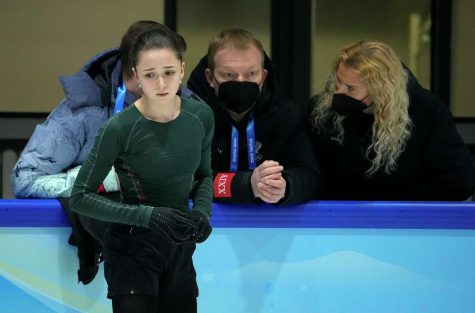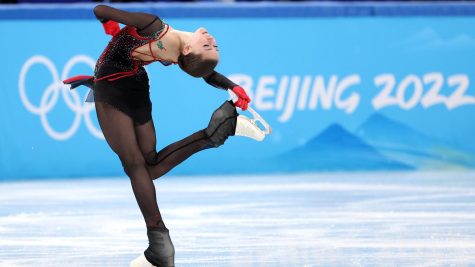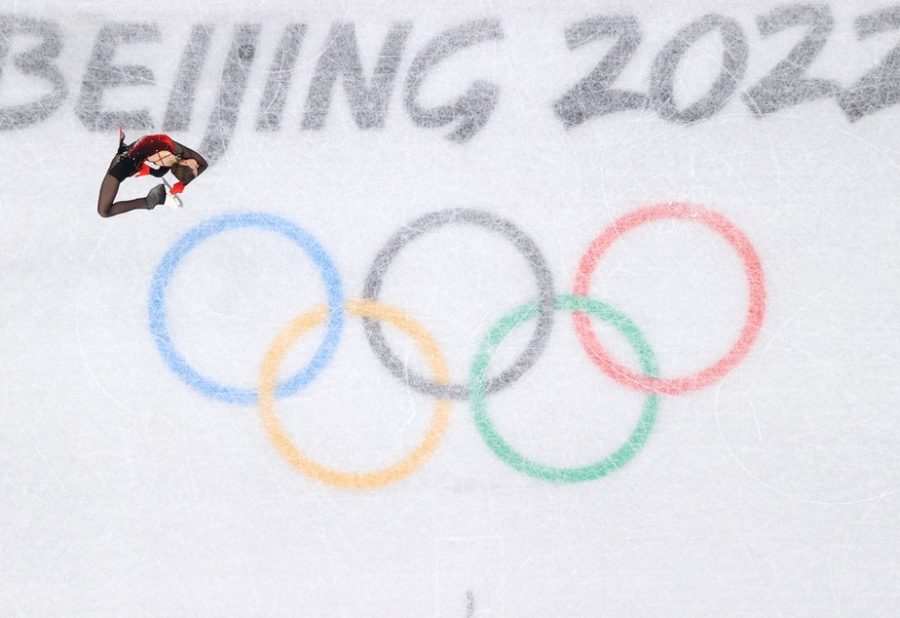Doping Scandal at the 2022 Winter Olympics: Russia at Risk of Losing Gold?
February 17, 2022

This year, a test turned up positive at the notorious winter Olympics, and this time, it wasn’t a COVID test. 15-year-old Kamila Valieva failed a routine drug test that she took back in December 2021 at the World Championships for figure skating, and the results finally came in in the midst of her Olympic run. During the team competition, Valieva performed a jaw-dropping routine that had many wondering how someone as young as herself could perform with such intricacy and precision. After taking the gold, however, many noticed that the medal ceremony for the skating team event had been postponed.
Valieva tested positive for trimetazidine, a drug usually taken for those with pulmonary and heart issues for increased endurance. Stamina is an essential component most winter athletes must possess to muscle through a routine, but it is illegal for it to be obtained through drug use. At the center of the issue is Valieva’s age, being only 15, she is considered a minor, and therefore can not be legally held responsible for the drugs found in her system. In situations like these, the immediate responsibility to Valieva goes to her coach, Eteri Tutberidze, who will now have to testify in front of the Olympic committee who will determine whether or not she may keep her medal. Valieva’s current claim is that she accidentally took some of her grandfather’s medication that he uses to help his heart problems, but many fans aren’t buying it.
This is not the first time Russia has been involved in an Olympic drug scandal. Their repeated drug offenses have indirectly removed them from the games. If you notice, all the Russian athletes are represented by “ROC ”, not Russia. This is because back in 2019, Russia received a four-year ban from the Olympics from the World Anti-Doping Agency for repeat offenses. This means their name cannot be officially used to represent their athletes at the Olympics, nor are they allowed to fly their flag or play their national anthem. In the interest of keeping things fair for honest Russian athletes, they are still given the chance to play in the games under the “Russian Olympic Committee.” Doping is extremely common amongst athletes in Russia and has caused them to be stripped of over 46 Olympic medals since the start of the games. In years past, they have been banned from multiple world sports competitions due to concerns over their athletes using steroids, and repeatedly failing drug tests. The largest whistleblower occurred in 2016 when it was revealed Russia’s “state-sponsored doping committee” was all part of a scam where Russian operatives deliberately switched out tainted urine samples during the 2014 Sochi Olympics that were actually held in Russia. As a result, as many as 14 medals belonging to Russian athletes were on the line, and the entire country was banned from the 2018 winter Olympics. They were later allowed to compete in the following years at Pyeongchang- but again under the condition that they would not fly their flag and that any medals they earned would not accrue to their all-time total. Clean athletes, however, were able to be represented under the OAR- Olympic athletes from Russia.

The center of Valieva’s case is this: should she keep her medal? After all, she did give an incredible influence, and was under the watchful eye of strict coaches- or, is it unfair? As a former figure skater myself, I do feel empathy for Valieva, however, I do not feel that she should be allowed to keep her medal because she had an unfair advantage. Skating is NOT an easy sport, and athletes train for hours and years to perfect their techniques, and at the very least, they deserve an equal playing field. I believe that if Valeria is old enough to compete in such a huge national competition, then she is old enough to take responsibility for the drugs in her system. I understand how she may have been pressured or coerced, but at the end of the day, she chose to step on that ice knowing she was cheating. Many say that because the results are from December and not from the Olympics that she should be allowed to keep her award, but I feel that nonetheless, the past affects the present- she cheated to get where she was (maybe someone else would have beaten her at the championships), so now she must face the consequence.
Many speculate Valieva’s doping was deliberate because the Russians knew the Olympic committee could not prosecute her due to being a minor and played on the fact that she was favored to win. While the Olympic committee is still in the process of reviewing, I think it’s important to bring up an incident that happened at a championship a few years back. A 13-year old Olympic skater accidentally left the rink without being told she needed to be drug tested. She came back from her hotel to comply and did a test negative. However, the Olympic committee argued that her leaving was a breach of the rules and that she would have to be disqualified. A spokesperson used the argument that at thirteen if she was old enough to compete, she was old enough to take responsibility for her actions.
Whether or not Valieva will be able to keep her first place title is still up in the air, but either way, she will not receive a medal ceremony. However you may feel, there is no denying that the situation is particularly sad considering Valieva could have performed just as amazing had she not been using drugs, she now faces defamation and disqualifications.
***This opinion article reflects the voice of the writer and does not necessarily represent the views of The Viking Times as a whole. Like most news outlets, The Viking Times is a non-partisan media platform.***



